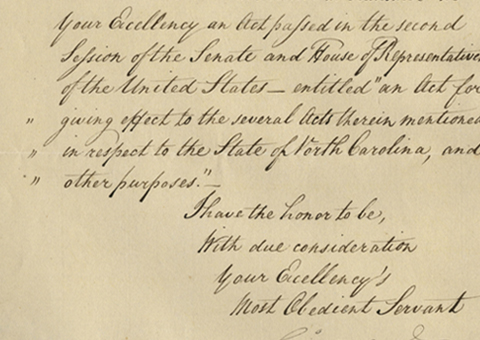Sold – Robert Treat Paine, Signer of the Declaration, Moves to Confiscate a Loyalist’s Property

During the Revolution.
Peter Johonot, whose wife was a granddaughter of Massachusetts Governor Dudley, was a Boston distiller with Tory sympathies. In March 1776, he was one of the committee sent to British General Howe to obtain his forbearance from destroying property in the city. Later in 1776, he fled to Nova Scotia and then...
Peter Johonot, whose wife was a granddaughter of Massachusetts Governor Dudley, was a Boston distiller with Tory sympathies. In March 1776, he was one of the committee sent to British General Howe to obtain his forbearance from destroying property in the city. Later in 1776, he fled to Nova Scotia and then went on to England. In 1778, the patriot government of the state proscribed and banished him.
After the Declaration of Independence, states adopted a policy that both helped finance the war and punish Loyalist dissenters – confiscation. Laws were passed making the taking of real estate and other property possible. In Massachusetts, which had a small percentage of Loyalists, many of them were men of means. So with plenty of incentive and little popular opposition, that state maintained a vigorous confiscation program. In 1779 alone, it seized 600,000 pounds worth of property, four times the amount of Pennsylvania. In 1780, it moved to legally confiscate Johonot’s property.
Manuscript Document Signed, with his holograph additions, 2 pages, Suffolk Co., Mass., January 5, 1780, being the state’s original draft for its complaint in the case of the State vs. Peter Johonnot. Johonnot is accused of having: “…levied War and Conspired to levy War against the Government & People of this Province, Colony & State, & then adhered to the King of Great Britain,…and did give to them aid and comfort…[and] did withdraw himself from this Province, Colony & State…That the said Petet Johonot hath freely renounced all political relations…and hath become an Alien…”. The document then sets forth a description of property owned by Johonnot which the State proposed to confiscate, and Paine’s signature follows. Paine was Attorney General at the time. The effort was successful and the property taken.
Johonot, who is listed in the book “The Loyalists of Massachusetts,” never did return to his native land. He died on London in 1809, leaving no descendants. Ironically, his brother’s wife, Elizabeth Quincy, was related to Abigail Adams.

Frame, Display, Preserve
Each frame is custom constructed, using only proper museum archival materials. This includes:The finest frames, tailored to match the document you have chosen. These can period style, antiqued, gilded, wood, etc. Fabric mats, including silk and satin, as well as museum mat board with hand painted bevels. Attachment of the document to the matting to ensure its protection. This "hinging" is done according to archival standards. Protective "glass," or Tru Vue Optium Acrylic glazing, which is shatter resistant, 99% UV protective, and anti-reflective. You benefit from our decades of experience in designing and creating beautiful, compelling, and protective framed historical documents.
Learn more about our Framing Services






































































































